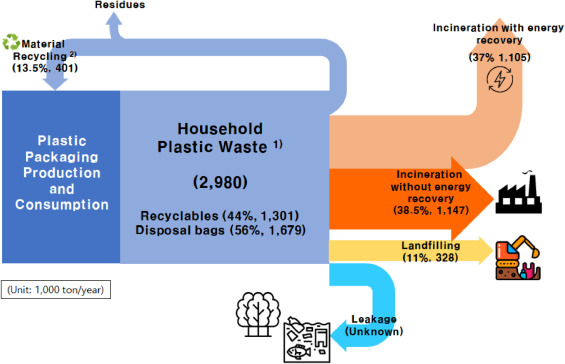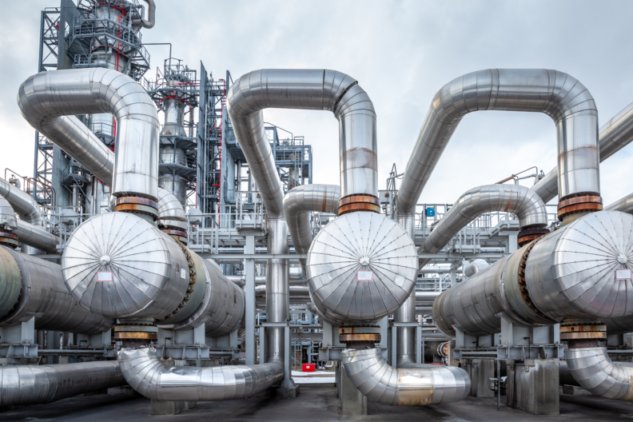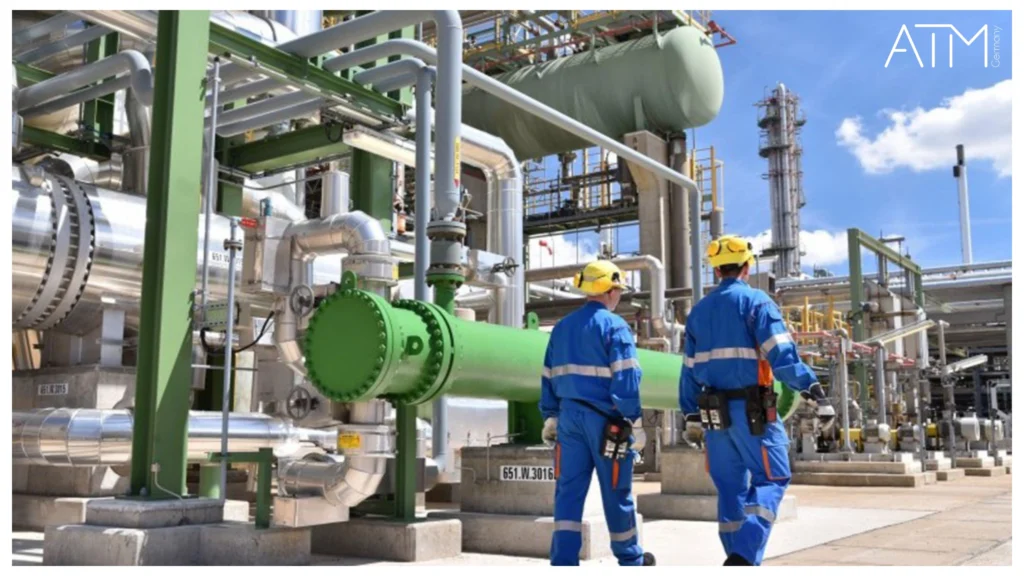The Most Commonly Used Recycled Products in the Petrochemical Industry
The petrochemical industry plays a crucial role in the global economy, providing the raw materials for a wide range of products, from plastics to fuels. However, the environmental impact of this industry has been a growing concern. As the world shifts towards more sustainable practices, the recycling of petrochemical products has become increasingly important. This article will explore some of the most commonly used recycled products in the petrochemical industry, highlighting their significance, applications, and the processes involved in their recycling.
1. Recycled Polyethylene Terephthalate (rPET)
Polyethylene Terephthalate, commonly known as PET, is one of the most widely used plastics in the world. It is primarily used in packaging, especially for beverages, food items, and personal care products. Due to its widespread use, PET is also one of the most commonly recycled plastics.
Significance and Applications
Recycled PET, or rPET, is a highly sought-after material due to its versatility and the fact that it can be recycled multiple times without significant degradation in quality. rPET is used in the production of new bottles, textiles, automotive parts, and even in construction materials. The recycling of PET not only helps reduce the environmental burden of plastic waste but also conserves the raw materials and energy that would otherwise be required to produce virgin PET.
Recycling Process
The recycling process of PET typically involves collection, sorting, cleaning, and reprocessing. Post-consumer PET bottles are collected, sorted to remove impurities, and then cleaned to remove any residues. The clean PET is then shredded into flakes, which can be further processed into pellets. These pellets are then used to manufacture new products. In some advanced recycling processes, PET can be chemically broken down into its monomers, which can be purified and re-polymerized into new PET, ensuring the material’s quality and performance.

2. Recycled High-Density Polyethylene (rHDPE)
High-Density Polyethylene (HDPE) is another common plastic used in a variety of applications, including packaging, piping, and even in the automotive industry. Like PET, HDPE is also widely recycled due to its durability and ease of processing.
Significance and Applications
Recycled HDPE, or rHDPE, is used in the production of new bottles, containers, pipes, and even in some building materials. The use of rHDPE helps reduce the demand for virgin HDPE, which in turn reduces the environmental impact associated with the extraction and processing of fossil fuels used in the production of plastics.
Recycling Process
The recycling process of HDPE involves similar steps to that of PET. The collected HDPE materials are sorted, cleaned, and shredded into flakes. These flakes are then melted and extruded into pellets, which can be used to manufacture new products. HDPE’s chemical stability allows it to be recycled multiple times without significant loss of properties, making it a valuable material in the circular economy.
3. Recycled Polypropylene (rPP)
Polypropylene (PP) is a versatile plastic used in a wide range of applications, including packaging, automotive parts, textiles, and medical devices. It is known for its high melting point, chemical resistance, and toughness.
Significance and Applications
Recycled Polypropylene, or rPP, is increasingly being used in various industries due to the growing emphasis on sustainability. rPP is used in the production of automotive parts, industrial fibers, consumer goods, and even in construction materials. The use of rPP not only helps reduce plastic waste but also conserves the resources and energy needed to produce virgin PP.
Recycling Process
The recycling of PP is more challenging compared to PET and HDPE due to its lower density and higher likelihood of contamination. However, advancements in sorting technologies and recycling processes have made it possible to recycle PP efficiently. The process typically involves collection, sorting, cleaning, and reprocessing. The recycled PP is then converted into pellets, which can be used to manufacture new products. In some cases, rPP is blended with virgin PP to improve the quality of the final product.
4. Recycled Polyvinyl Chloride (rPVC)
Polyvinyl Chloride (PVC) is a widely used plastic in the construction industry, primarily for pipes, window frames, and flooring. PVC is known for its durability, resistance to environmental degradation, and low cost.
Significance and Applications
Recycled PVC, or rPVC, is used in a variety of applications, including new pipes, flooring, and roofing materials. The recycling of PVC is particularly important due to the environmental concerns associated with its disposal. Unlike other plastics, PVC can release harmful chemicals when burned, making recycling a more sustainable option.
Recycling Process
The recycling of PVC involves several steps, including collection, sorting, cleaning, and reprocessing. One of the challenges in PVC recycling is the removal of additives and contaminants that can affect the quality of the recycled material. Advanced recycling technologies, such as mechanical and chemical recycling, have been developed to address these challenges. In mechanical recycling, PVC is ground into small particles, which are then melted and reformed into new products. Chemical recycling, on the other hand, involves breaking down PVC into its chemical components, which can be purified and used to produce new PVC.
5. Recycled Polystyrene (rPS)
Polystyrene (PS) is a lightweight plastic used in a variety of applications, including packaging, insulation, and disposable food containers. Despite its widespread use, polystyrene has been criticized for its environmental impact, particularly its tendency to break down into small particles that can pollute the environment.
Significance and Applications
Recycled Polystyrene, or rPS, is used in the production of new packaging materials, insulation, and even in some building products. The recycling of PS is essential to reducing its environmental impact and conserving the resources required to produce virgin PS.
Recycling Process
The recycling of polystyrene involves several steps, including collection, sorting, cleaning, and reprocessing. One of the challenges in PS recycling is its low density, which makes it difficult to collect and transport efficiently. However, advancements in recycling technologies, such as compaction and densification, have made it possible to recycle PS more effectively. The recycled PS is then used to produce new products, helping to reduce the environmental impact of this material.

6. Recycled Polycarbonate (rPC)
Polycarbonate (PC) is a high-performance plastic used in a variety of applications, including automotive parts, electronics, and medical devices. It is known for its strength, transparency, and resistance to impact.
Significance and Applications
Recycled Polycarbonate, or rPC, is increasingly being used in various industries due to the growing emphasis on sustainability. rPC is used in the production of new automotive parts, electronics, and consumer goods. The use of rPC not only helps reduce plastic waste but also conserves the resources and energy needed to produce virgin PC.
Recycling Process
The recycling of polycarbonate involves several steps, including collection, sorting, cleaning, and reprocessing. Due to its high-performance properties, polycarbonate can be more challenging to recycle compared to other plastics. However, advancements in recycling technologies have made it possible to recycle polycarbonate efficiently. The recycled polycarbonate is then used to produce new products, helping to reduce the environmental impact of this material.
Conclusion
The recycling of petrochemical products is an essential component of the global effort to reduce waste and promote sustainability. The materials discussed in this article—rPET, rHDPE, rPP, rPVC, rPS, and rPC—are some of the most commonly recycled products in the petrochemical industry. By recycling these materials, we can conserve resources, reduce environmental impact, and contribute to a more sustainable future.
As the demand for sustainable practices continues to grow, the importance of recycling in the petrochemical industry will only increase. Innovations in recycling technologies and processes will play a crucial role in ensuring that more materials can be recycled efficiently and effectively, helping to create a circular economy where waste is minimized, and resources are conserved.
ATM GERMANY is committed to supporting these efforts by providing high-quality recycled petrochemical products to our customers. By choosing recycled materials, our customers can contribute to a more sustainable future while also benefiting from the cost savings and performance advantages that these materials offer.
get more and free information about products and services automatically in email:

